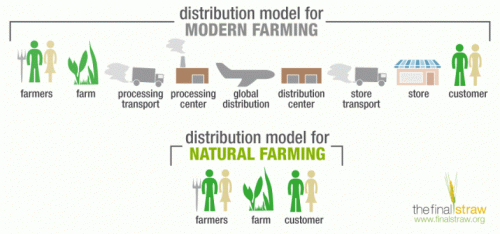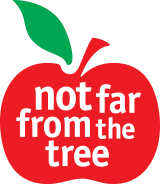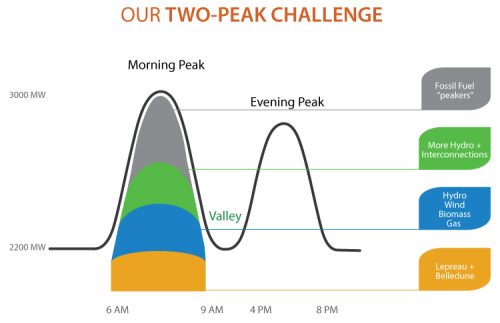Thought Experiment: On Production and Distribution
I have a hunch that most of our “production problems” we have can be reframed as problems of distribution.
Here, I put this hunch of mine to the test against some iconic “problems of the world” in the crudest and most irreverent thought experiment ever, supported by no evidence whatsoever outside of what I can recall off the top of my head.
Food production is not an issue so much as food distribution.
To whoever still sees systemic hunger and malnutrition as a problem of not producing enough food in this day and age… all I can say is, come on. Thinking of this problem in terms of food production follows the logic: “we can justify destroying more land for agriculture because we need to make more food for the poor”. The more cruel undertones of that logic is that assumption that the large population of poor people in the world are the reasons we need to cultivate more land; and therefore the present interests of the poor are in opposition to the interests of humanity’s future (aka environmental degradation).
There are too many sources to cite about how much food is systematically produced in excess and systemically wasted. There are arbitrary expiry dates put in place because people need to cover their legal asses in the event a customer may get sick (and, more sinisterly, it’s like using planned obsolescence to increase the demand of the product?). There’s food being withheld for cosmetic reasons (they’re not pretty enough) or other stupid reasons (they don’t fit in the packaging). Stores and restaurants may not let employees take home day-old food, mostly because employers don’t trust their employees and think they’ll be taken advantage of. Needless to say, the food distribution system is incredibly lossy and what we probably need more is not to grow more food, but to distribute what we have better.
There are initiatives to reduce the harms of our existing food system, doing their best in light of a bad situation, as they say. Some promising ideas to plug:
- Almost Perfect: a grocery store for “‘thrift foods’ products which have been overproduced or discontinued and are therefore sold at a large discount from the manufacturer’s original (or list) price.” (Wikipedia)
- Second Harvest: recovers surplus food from farmers, distributors, retailers, restaurants and redistributes it to food banks.
- Wefood: grocery store we stumbled upon in Copenhagen selling expired food at a discount
Oh, but I lied. This is ultimately a food production issue after all. It’s just that it’s not about the quantity of the food we produce and distribute so much as how we produce and distribute food that’s concerning. The food we have access to is sickly nutrition-compromised stuff: brutally fertilized and pesticide’d to survive in monoculture, artificially ripened to survive the transport.

Source: the final straw
Indeed, local food production and the economic accessibility thereof for those in need is a legitimate issue. One last organization to plug:

- Not Far From The Tree: property owners with fruit-bearing trees can register their tree with the organization. Volunteers from the organization help the property owner pick the fruit and the fruit is divided equally between the property owner, the volunteers and local food banks/shelters [1].
I love how they are supporting the accessibility of locally grown fresh food and questioning how we waste some of the best food we grow locally in this completely non-confrontational way.
The logical extension being–what if we all grew food in our backyards and parks instead of grass?
[1] Having volunteered several times, I love how picking fruit with other members of my community gives me the opportunity to interact with people outside my social circles. I love how it’s the kind of social interaction about common interests rather than actually being social. I love how picking fruit justifies being together and eavesdropping on others’ conversations without actually having to participate in small talk.
Energy production is not as much an issue as its distribution
The caveat to this argument is that the real problem with energy production of renewables is storage. Whereas in coal, you can just start burning more on demand, you can’t just command the sun to shine and the wind to blow to get renewable energy on demand. On the hand, we don’t have good ways to store excess energy from our sunny days for our rainy days.
The proposed solution: a larger grid. The idea is, if you connect a larger area to the the same energy grid, and it’ll always be windy or sunny somewhere on the grid. In this way, we distribute produced energy over space.
We can also distribute energy over time. “Peak demand” is the temporal instant within a give time period (ie. a day) that demands the maximum amount of energy. No other time within that time period is the system expected to require more instantaneous energy.

Source: New Brunswick Power
The thing is, all the infrastructure we build needs to satisfy the peak demand (the maximum load that the system needs to bear at an instant). That means if we can systematically reduce our consumption of energy during the peak, (aka redistribute when we use energy) the entire system stands to benefit although the impact with respect to emissions is debated. Where I live, differential pricing is used to encourage people to use energy outside peak hours.
Some less-than-developed thoughts
Posting thoughts I haven’t really given thought to is–at best–not a good idea, and could–at worst–get me in trouble. But I thought I might as well list these here as a “to-think” list of sorts. May I never regret this..
Money production isn’t an issue so much as distribution.
Surprise, surprise.
Economists have already mastered money production thankyouverymuch. We have central banks to control inflation and regulate our money supply. We introduced Keynesian economics to combat the perfect-theory-but-scary-in-practice free-market-loving economic liberalism.
Yet I don’t even need to show examples of how money distribution goes wrong. It’s practically common knowledge that wealth is distributed is disturbingly unequally. Here’s a pretty good video explaining the Lorenz curve without the lingo.
I will also spare you any suggested redistribution solutions because the theoretically obvious ones are psychologically difficult, and I am absolutely not entitled to explain anything about policies or regulation.
Job production is not an issue so much as job distribution???
If person A has 0 hours of work/week and wished to have work and an equivalently skilled and equivalently socialized person B is overworked at 60 hours/week. Why can’t person A and B split the work and the pay? –exploitative employers or underfunded public programs are my best guess..
Housing isn’t a production issue as much as a distribution issue???
There are two directions I can think of to take this highly undeveloped idea.
Firstly, gentrification and systemic discrimination. Homes for the rich and privileged are in fantastic areas meanwhile the poor and racialized are pushed out to neighbourhoods with more environmental contaminants.
Secondly, at some point we were socialized to envision success as moving or nuclear families into anti-social detached homes with more rooms than number of occupants. I’m pretty sure the total number of rooms we have in my neighbourhood exceeds the number of people we live in the neighbourhood. If so, the problem isn’t that we haven’t produced enough houses, we just are not willing to consider distributing our sheltered spaces better. For example. what if co-housing were more socially acceptable?
People production isn’t an issue so much as distribution???
One last crude shower thought.
Countries that find themselves with a declining population often encourage their citizens to make more babies. With all this scare about overpopulation, why can’t they just encourage their citizens to adopt from countries that have a “surplus”? Or suggest adopting instead of procreating in general? I guess you don’t want systemic encouragement of adoption lest it encourages a weird demand of orphans that requires some equally perverse method of supply…
okay scratch that …
